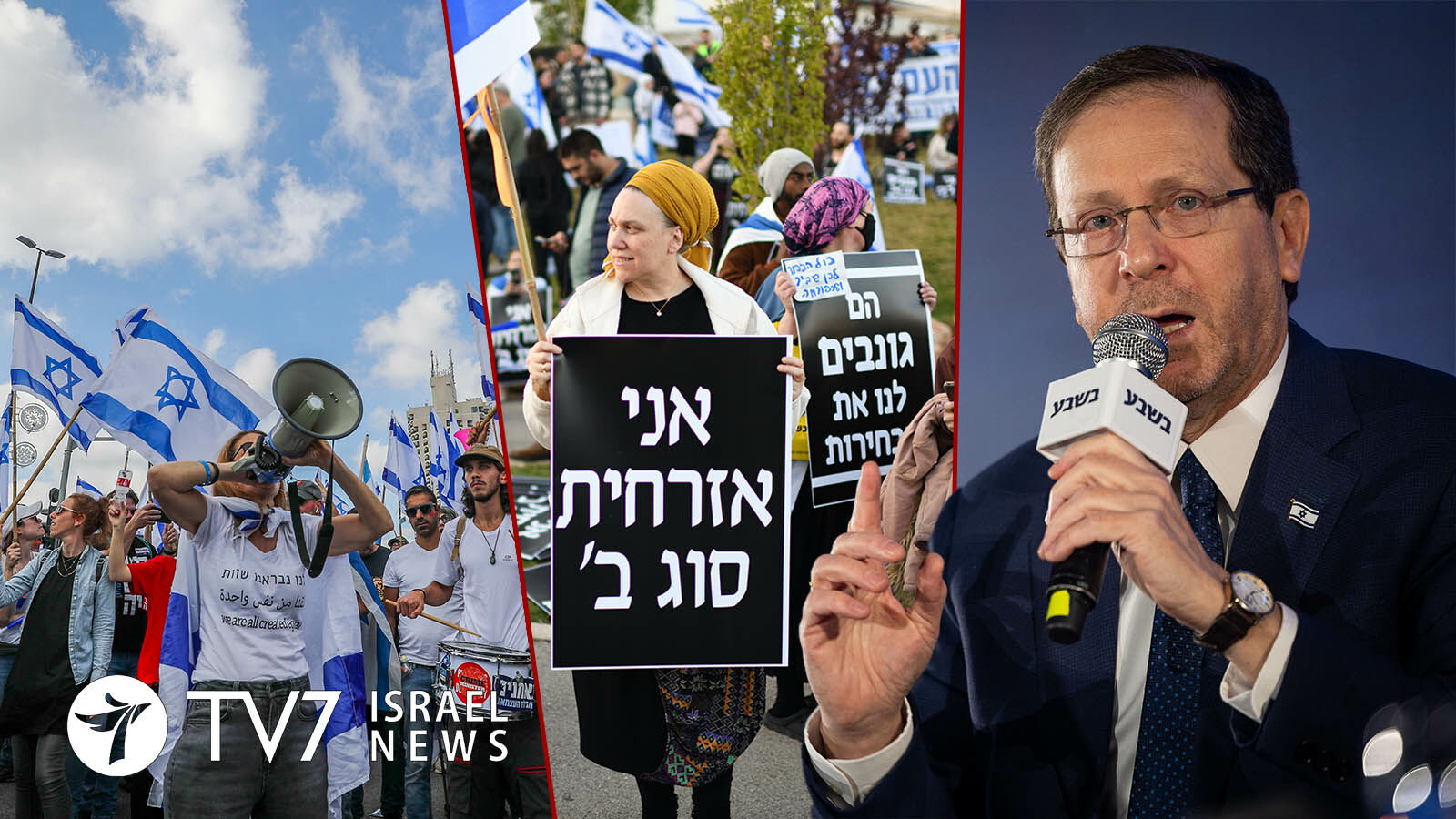The step has been taken to mediate the national crisis over the government’s planned but delayed judicial reform plans.
By Erin Viner
Israeli President Isaac Herzog today met with Knesset factions to negotiate a solution to major dissent over legislation being pushed by the ruling coalition.
Members of Knesset (MKs) of each party has appointed representatives to hold individual meetings with President Herzog, whose role is largely ceremonial. They will then discuss the matter among themselves.
A meeting with the Yisrael Beiteinu team scheduled to be held today did not occur after the party announced it would not attend the talks until proposed legislation to award the coalition a majority in Israel’s Judicial Appointments Committee has been withdrawn. The bill has already passed the first of three readings by the Knesset to become law – which Yisrael Beitenu likened to the “holding a gun to the opposition’s head” because such a move could take place within just this within 24 hours.
President Herzog expressed hope that the negotiations will “calm the spirits, lower the flames and lead to positive results with a broad agreement.” The effort will be conducted “in full cooperation with all of the political and public systems,” he pledged.
The first round of talks were held last night with negotiating teams representing the coalition and the opposition parties Yesh Atid and National Unity, following Monday’s announcement by Prime Minister Benjamin Netanyahu that his government will temporarily suspend the contentious judicial overhaul to hold dialogue.
National Unity, led by MK Benny Gantz, was the first to announce its representatives. They are MKs Gideon Sa’ar, Chili Tropper, Orit Farkash-HaCohen and Attorney Ronen Aviani.
Yesh Atid leader MK Yair Lapid was next to name his team, consisting of MKs Orna Barbivai, Karine Elharar, former Director General of the Prime Minister’s Office Naama Schultz and Attorney Oded Gazit.
The Prime Minister’s Likud party is represented by Strategic Affairs Minister Ron Dermer, Cabinet Secretary Yossi Fuchs, Kohelet Policy Forum legal department head Dr. Aviad Bakshi and Professor Talia Einhorn.
The first meeting concluded after one hour and was held in “good spirits,” said a statement from the President’s Residence in Jerusalem.
Yisrael Beytenu, headed by MK Avigdor Liberman, is MK Oded Forrer, former MKs Alex Kusnir and Limor Magen-Tellem, and attorney Guy Wagner.
Over 100,000 Israelis protested outside the Knesset in Jerusalem on Monday as tens of thousands of others took to the streets at separate rallies nationwide, amid a general strike called by the largest labor union and entities in the private sector. In the first such action in Israeli history, the Ben Gurion International Airport, medical facilities, local and regional councils, universities and other institutions declared a general strike alongside the Histadrut Labor Union.
The sectors had joined forces in a widescale show of solidarity against the government’s judicial reform plan, fueled by Netanyahu’s firing of Defense Minister Yoav Gallant for having warned repercussions to Israel’s security if the proposal is passed by the parliament. The strikes were called off after Netanyahu announced the delay.
The nation has been gripped by weekly and increasingly raucous nationwide demonstrations following the 4 January 2023 announcement that the Netanyahu coalition – which took office only days before on 29 December 2022 – of a sweeping “reform of governance” to limit Supreme Court rulings against government moves or Knesset laws, while increasing politicians’ input over nominations to the bench.
Israel’s right-wing 37th government, an alliance between the Premier’s Likud party with several smaller religious and hard-right nationalist factions, asserts it holds the mandate for changes, deemed necessary to curb overreach by activist judges and restore balance between the legislative, executive and judiciary.
The court’s defenders say it plays a vital role in holding the government to account in a country that has no formal constitution, and that the government’s overhaul would weaken the courts, endanger civil liberties and harm the economy. The proposal has drawn fierce condemnation from Opposition Members of Knesset (MKs), legal officials, military reservists and advocacy groups – further broadening already deep political divisions in Israeli society.
Prime Minister Netanyahu, who is himself on trial on corruption charges which he denies, had dismissed the protests as refusal by leftist adversaries to accept the results of the 1 November’s election which resulted in one of the most right-wing governments in Israel’s history. He has ardently defended the judicial overhaul.
